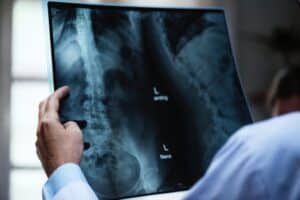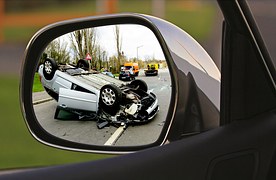Am I Owed Compensation for a Baltimore Personal Injury?

Have you suffered an injury due to someone else’s negligence? If so, you are eligible to receive compensation. Damages, both economic and non-economic, are intended to compensate the injured party for losses incurred as a result of their injury. It might be a poor substitute for health, but. money for a loss or wrong, physical or otherwise, is at the very core of our civil justice system. As Attorney Eric T. Kirk will tell you.
Loss of Income
Injuries often limit the victim’s ability to perform their usual work. Compensation is awarded for wages lost. In addition, estimated potential earnings that might have been earned in the future but for the injury can be considered in appropriate circumstances. This concept is known as “loss of earning capacity”.
How To: Prove Lost Wages / Income in a Baltimore Car Accident Case
Proving loss of income in court is a crucial component of many personal injury and insurance claims. Successfully putting on such evidence is one of the bigger contributions a Baltimore personal injury trial. Whether a plaintiff is seeking damages for a car accident, wrongful termination, or a denied insurance claim, the ability to clearly demonstrate lost earnings can significantly impact the value of the case. Below are the most common methods used to prove loss of income in court.
- How to Prove “Straight” Lost Wages: Pay Stubs and Wage Statements
One of the most straightforward ways to prove lost income is through recent pay stubs and wage statements. These documents offer a clear record of a person’s earnings before the injury or loss occurred. By comparing pre-incident earnings with the income received (or not received) during the recovery period, a court can calculate the total lost wages. Plaintiffs should ideally provide several months’ worth * of pay stubs to establish a reliable average.
Baltimore PI Lawyer Tip: I recommend 3 – months of records. - Medical Documentation
To tie lost income directly to the injury, plaintiffs must present medical records that clearly indicate work restrictions, recovery periods, or total disability. A treating physician’s note confirming the plaintiff’s inability to work helps establish a causal link between the injury and the income loss.
- Tax Returns and W-2/1099 Forms
Tax returns, W-2s (for employees), or 1099s (for independent contractors) from previous years serve as reliable historical evidence of a person’s typical earnings. These records can help demonstrate consistent income patterns, seasonal fluctuations, and year-over-year trends. Courts frequently may on these documents to corroborate claimed losses, especially when current pay stubs are unavailable or when the plaintiff is self-employed.
- Employer Testimony or Affidavit
A written statement or in-court testimony from the plaintiff’s employer can provide powerful support for a wage loss claim. The employer can confirm the employee’s position, hours, wage rate, bonuses, and the amount of time missed due to the injury. They can also verify whether the person is still employed, the likelihood of returning, and whether any light-duty work was offered.
Baltimore PI Lawyer Tip: Typically a written statement from the employer is not admissible, although the actual pay records may be considered business records. - How To Prove Self-Employment Income
Self-employed individuals must rely on alternative documentation, such as profit and loss statements, business invoices, client contracts, and bank deposits. It can be a difficult proposition. In many cases, an accountant or financial expert may need to prepare a summary report to estimate what the plaintiff would have earned but for the injury. Detailed and accurate business records are essential to make a credible claim.
- Summary
To prove loss of income in court, plaintiffs should use a combination of documents: pay stubs, tax returns, employer statements, business record, and medical evidence. My advice, and what I tend to use in court, it is the more comprehensive and consistent forms of documentation making it more likely the claim will be accepted. In more complex cases, especially involving self-employment or long-term disability, expert testimony may be required to calculate damages accurately.
Medical Treatment
The most common form of compensation is awarded as reimbursement for medical care associated with the injury. This includes any future medical treatment reasonably anticipated in addition to medical expenses already incurred.
Non Economic Damages: “Pain and Suffering”

Victims are eligible to receive compensation for any past, ongoing, and future physical and emotional pain and suffering experienced as a result of an accident and resulting injury. This notion, which encompasses things like physical and emotional distress, loss of enjoyment of life and activity, embarrassment, humiliation, and well as physical pain and torment, is generally referred to as non-economic damage. Maryland law imposes “cap” or upper limit on the maximum awards for non-economic damage.
Emotional Distress
In particularly serious cases, the injury plaintiff may seek compensation due for psychological distress resulting from their accident, including anxiety, loss of sleep, or post-traumatic stress disorder (PTSD).
Loss of Property, or Loss of Use
The injured plaintiff can request compensation for the fair market value of any personal items that were damaged as a result of your accident, including vehicles or other property.
Loss of Consortium
If the accident or injury impacts the plaintiff’s relationship with their spouse or family they could be awarded compensation for loss of consortium.
Punitive Damages

In cases of extreme, or gross, negligence, the victim may be awarded punitive damages. Damages are generally thought of as a measure of recovery to “make someone whole”, or to compensate them monetarily for a non-economic loss. Unlike compensatory damages, punitive damages are usually awarded with the distinct purpose of punishing the negligent party. It is exceedingly rare, if even possible, to receive punitive damages in an motor vehicle accident case premised on negligence. Moreover, an insurance company would not pay any award for punitive damage.
Each of these general concepts is explored in specific detail in separate guides on this site. If you were the victim of negligence and feel you are owed compensation, I’d suggest we meet. I invite all potential clients to participate in a no-cost analysis and strategy conference. Contact me today to arrange a time to meet. 410 591 2835, or simply complete the form at the bottom of the page.



